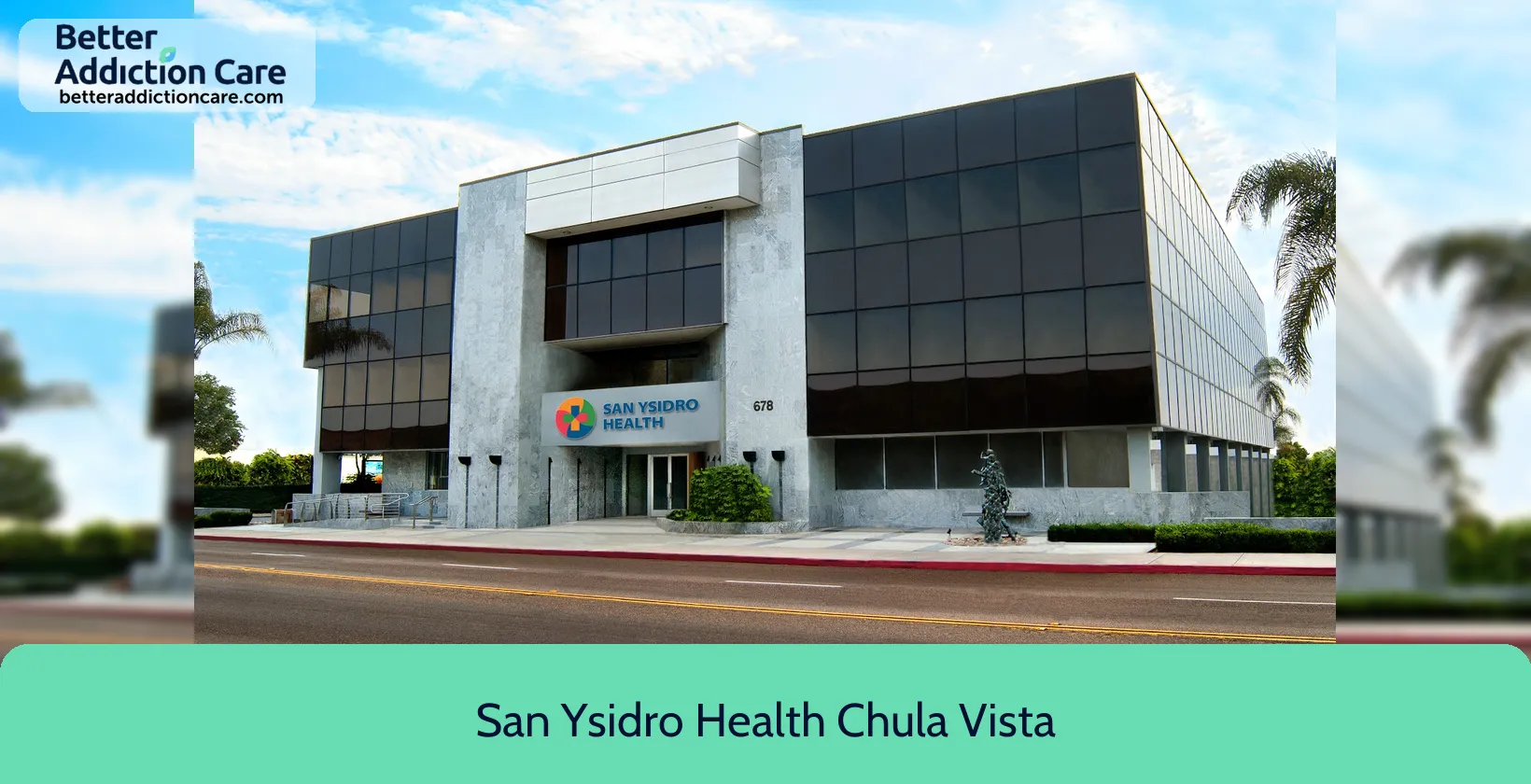McAlister Institute - SBRRC
Overview
The South Bay Regional Recovery Center is a rehab center in Chula Vista, California. It is part of the McAlister Institute. The center has an outpatient treatment program for people over 18 who are struggling with drug abuse and related problems, such as mental health disorders that happen at the same time. With a dual diagnosis method, the center helps people with both addiction and mental health problems in a complete way.
Over a hundred different programs are available at South Bay Regional Recovery Center to help people on their way to recovery. These services include full evaluations, personalized treatment plans, and different types of counseling, like one-on-one and group therapy. Case management and care planning are also offered by the center to make sure that clients get all the help they need. There are also services for mental health support, job assistance, re-entry programs, housing assistance, and aftercare services to help clients stay sober in the long run.
South Bay Regional Recovery Center follows high standards of care and is accredited by the State Department of Health Care Services. It provides a structured and supportive atmosphere for adults who are trying to recover from substance abuse and mental health problems that happen at the same time.
McAlister Institute - SBRRC at a Glance
Payment Options
- Medicaid
- Cash or self-payment
- State-financed health insurance plan other than Medicaid
- Sliding fee scale (fee is based on income and other factors)
- Private health insurance
Assessments
- Comprehensive mental health assessment
- Comprehensive substance use assessment
Age Groups
- Adults
- Young adults
Ancillary Services
- Assisted Outpatient Treatment
- Family psychoeducation
- Intensive case management
- Social skills development
Highlights About McAlister Institute - SBRRC
6.62/10
With an overall rating of 6.62/10, this facility has following balanced range of services. Alcohol Rehabilitation: 8.00/10, Drug Rehab and Detox: 6.00/10, Insurance and Payments: 6.00/10, Treatment Options: 6.49/10.-
Alcohol Rehabilitation 8.00
-
Treatment Options 6.49
-
Drug Rehab and Detox 6.00
-
Insurance and Payments 6.00
Accreditations
State department of health:

State Licenses, issued by government agencies, authorize rehabilitation organizations to legally operate within designated geographical areas. The specific licenses required for operation are typically determined by both the nature of the rehabilitation program provided by the facility and its physical location.
Treatment At McAlister Institute - SBRRC
Treatment Conditions
- Mental health treatment
- Alcoholism
- Opioid Addiction
- Substance use treatment
- Co-occurring Disorders
Care Levels
- Intensive outpatient treatment
- Detoxification
- Outpatient
Treatment Modalities
- Family counseling
- Group counseling
- Trauma-related counseling
- Individual psychotherapy
- Cognitive Behavioral Therapy
Ancillary Services
Languages
- Spanish
- English
Special Programs
- Clients with HIV or AIDS
- Pregnant/postpartum women
- Active duty military
- Clients who have experienced trauma
Get Help Now
Common Questions About McAlister Institute - SBRRC
Contact Information
Other Facilities in Chula Vista

7.31

6.71
DISCLAIMER: The facility name, logo and brand are the property and registered trademarks of San Ysidro Health Chula Vista, and are being used for identification and informational purposes only. Use of these names, logos and brands shall not imply endorsement. BetterAddictionCare.com is not affiliated with or sponsored by San Ysidro Health Chula Vista.

